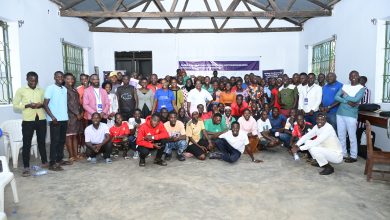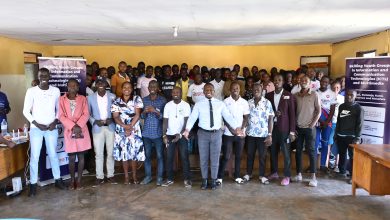#OutToLunch: Finishing university? Learning has just started

By Denis Jjuuko
Some of Uganda’s universities have concluded their end of year exams at least for their undergraduate students. Some students have taken to social media to celebrate this milestone. It is not every day that one gets to complete their education. In Uganda, many have been studying since they were three years old or younger. That is averagely 20 years of classrooms. Phew!
Anything that takes 20 years to accomplish should be celebrated. And those in Uganda who have managed to complete their education are the lucky few. The majority of kids who start their primary education don’t get the opportunity to sit their primary leaving exams. Numbers continue dropping in secondary education and other levels.
The end of exams comes for most of these students at the precipice of something new —disruptive technologies like artificial intelligence that is changing the world. Some jobs will have to go but many others will be created. There are about 400,000 young people that enter the job market in Uganda every year. It is a dauting task to find work but it is also an opportunity for many young people to define their future.
The end of final year exams and the graduation ceremony in months ahead doesn’t mean the end of learning. Formal education for many may be over but lifelong learning starts right now. Life is about learning something new all the time and being able to adapt to the realities that are thrown our way.
But the most important thing for the majority of young people finishing their university or other education is finding a job. There is a lot of talk about the disruptive nature of artificial intelligence but machines and such technologies won’t entirely replace humans. Those who will succeed are those who will learn how to work alongside them. But there are still other things that fresh graduates looking for a job in Uganda must embrace. They are equally important or even more critical than even some of the digital skills.
Talent alone or high academic qualifications may open the door for you but it won’t keep you in the room. That is why many times people with average talent succeed over the most talented ones. Virtues that keep average people flying.
At university, there is perhaps no course unit on virtues. Stuff like honesty. Yet it is a key ingredient of success. How many people promise to do something and do it? There is an increasing shortage of honest people in Uganda. Anyone who tries not to shortchange everyone will succeed. People including the most dishonest ones like working with honest people. They want to protect their side of the bargain. You have heard of honor among thieves.
Communication skills are very important. You can’t only answer your phone call before you receive the deposit to do some work and then answer only when you want and then complain that person demanding their work are unreasonable. They were not unreasonable before you agreed to do the work.
Giving feedback is critical. When they send you somewhere, you must report back. You don’t wait to be asked to inform them of what happened. Employers like people who are proactive. And so do customers for those who may want to go the self-employment or hustling route.
There is no African time. And if you plan to work in Kampala, at the moment there is no public transport worth the ink of this article. Roads get clogged. But you can’t tell people that you arrived late because of traffic jam. I understand these days roads can be closed even to pedestrians but the reason you have a phone is to call and communicate why there is a delay. You may give it as an excuse but people will one day find out that you are lying.
Read as much as possible. The more you read, the more you understand the world its complexities. Reading creates an open mind. Don’t be rigid. Listen to what others say. Writing even in the age of ChatGPT is still important. You will not always be sending WhatsApp audios. Learn to write. You can’t avoid it. One way to learn writing is by reading.
And of course, learn a new skill. There are many online courses. Google, Storytelling Africa, Udemy and many other platforms provide free or very affordable courses. All you need is an internet connection and sparing a few hours a week. In the meantime, congratulations on the completion of your university education.
The writer is a communication and visibility consultant djjuuko@gmail.com





